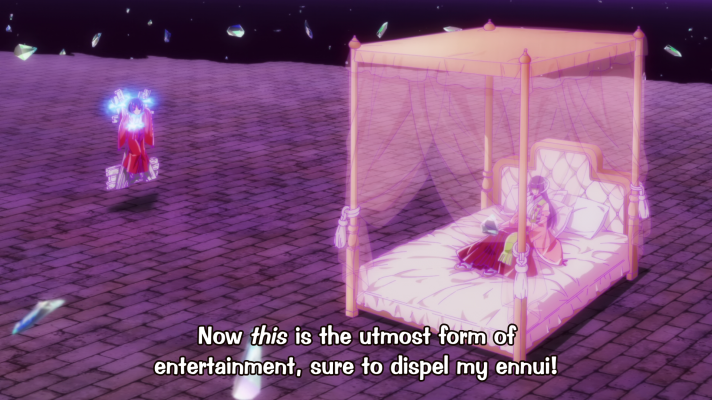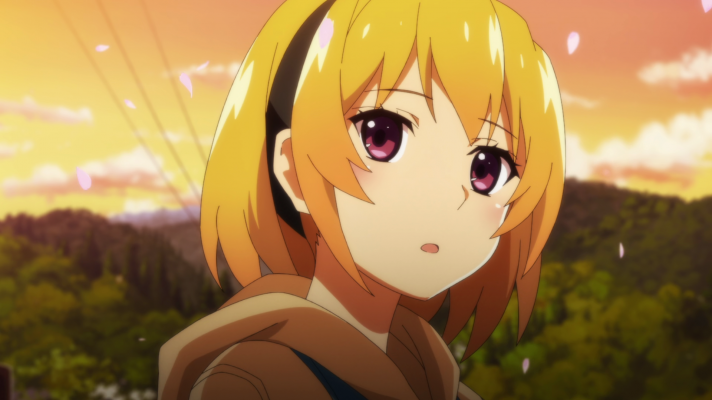
The fact "Eua" facilitated all of this suffering just to give herself an entertaining TV show to watch while lounging in bed was both outrageously flippant of her (as should be expected of witches at this point, really) and meta as hell, I love it.
That's why Rika and Satoko's fights were being framed increasingly like straight-up homages to action scenes from a variety of anime genres. I did wonder about that at the beginning, whether Higurashi
really needed to become a magical girl or shonen show, but it was precisely because that's what "Eua" wanted. As endings go, I'm never a big fan of deus ex machina solutions. There are probably exceptions (it's likely someone can point one out and call me a hypocrite here) but for the most part I find them lazy and uninspired and Hanyū's defeat of "Eua" by means of a magic sword falling through a crack in reality and into her hand was no exception. While still satisfying to see Hanyū come out on top, it wasn't quite the level of complex or clever storytelling I'd otherwise come to expect from Higurashi.
That particular itch was scratched in other ways though. Witches are even more complicated than I thought. The relationship between Hanyū and "Eua" is teased to all hell here but not clarified, so I remain in the dark about Hanyū's actual nature other than the revelation "Eua" had some hand in her existence. If that's true
and it's also true she was once the physical being known as Oyashiro-sama that just makes things even more mindbending. Likewise the idea that witches can essentially posses their people of origin, which I suppose finally satisfies some of my confusion from Umineko as well as Rika's statement from Rei that she would "no longer be the witch Bernkastel". The latter had definitely been gnawing at me a bit because I felt certain they were supposed to be separate beings, but that would explain it.
It was nice to see Rika and Satoko survive the show with their characters intact, which was sometimes a bit of a concern for me. Though it does seem
both of them were at times possessed by their witches, who I suppose are also part of them, just not a particularly nice part. That would account for any ooc behaviour (and has me wondering even more now about there being a possible link between that and Hinamizawa syndrome) since amoral sadism seems to be a witch's default setting. They've both grown and changed but the essence of their characters, their personalities and their love for each other endured through it all and was really quite touching. That's probably the biggest achievement of Gō/Sotsu in my eyes, to move me emotionally in ways the other series' never quite managed. Bravo.



